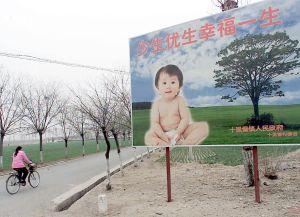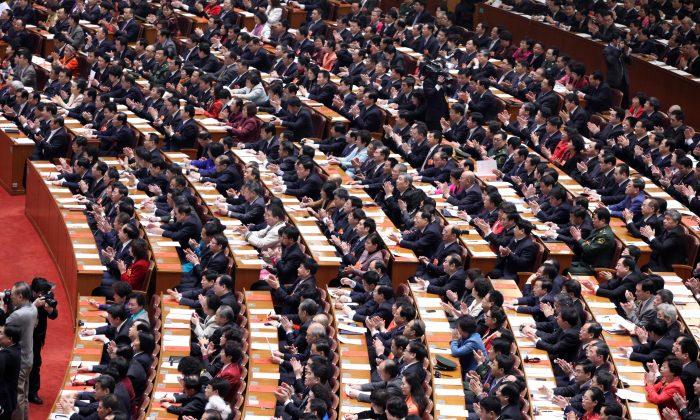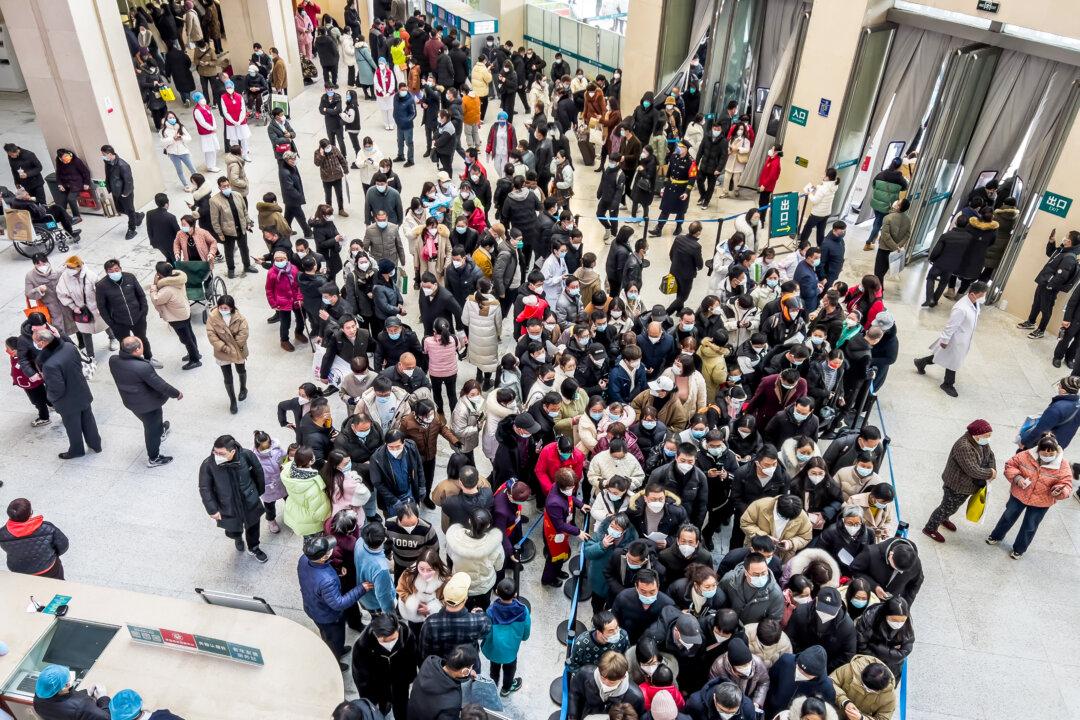China’s birth rate has fallen to the lowest level since the communists took over China in 1949, and the trend may continue as the country’s marriage rate has also dropped to a 12-year low.
There were 14.65 million births in China last year, a drop of 580,000 from 2018, according to a report from China’s National Bureau of Statistics published on Jan. 17.
The 2019 birth rate of 10.48 live births per 1,000 people, was the lowest in seven decades, with the exception of 1961, the last year of a severe three-year famine.
One-Child Policy
In 1979, worried about overpopulation, the Chinese regime launched a nationwide birth control measure, commonly known as the “one-child policy.” Each couple was allowed to have only one child, with only a few exceptions, such as rural families whose first-born was a girl, or families whose first-born was disabled.The policy was strictly enforced, with a family planning office in every corner of the country. Those who violated the rule have faced fines, humiliation, loss of jobs, and oftentimes forced abortions. If their second or third child was born without government permission, this child would have great difficulty obtaining a resident ID, which in turn would cause big problems when the child has to to attend school.
Authorities reversed the one-child policy in 2015, when they realized that China was facing another demographic problem—an aging population and a shrinking labor force.
By the end of 2019, the number of Chinese aged 65 and over was 176.03 million, or 12.6 percent of the total population, while the number of people aged 16 to 59 was 896.4 million, or 64 percent.
Chinese state media has admitted that the low birth and marriage rates in the past year are reflected in demographic and social problems.
Fewer and Later Marriages
Moreover, young people are getting married later in life than their parents, and their divorce rate is also much higher than their parents. Some young people choose not to get married at all, and some married couples choose not to have any children.Take Ningbo City, the second-largest city in Zhejiang Province, which is one of the more developed provinces in the country, as an example. There were 32,604 marriages in Ningbo last year, the lowest number in nearly 30 years, according to Ningbo Evening News. Divorces reached 17,766, a record high since 1991.
The average marriage age in Ningbo is 32 for men, and 30 for women.
Social Problems and High Cost of Living
Overseas Chinese commentator Wen Xiaogang agrees that the pressures of modern life and high cost of living are indeed major reasons for the low marriage and birth rates.Speaking to the Chinese-language Epoch Times, Wen pointed out that under communist rule, the majority of Chinese citizens feel that their basic needs are not guaranteed, because unemployment benefits and health insurance are inadequate when they are needed.
The widespread social problems in the country, such as corruption, toxic foods, and even toxic clothes, discourage young educated people because they feel they aren’t able to provide a good future for a child, Wen said.
Social Media Users Express Pessimism
Shortly after the birth rate data was released, Chinese internet users posted many comments, saying they can’t even afford to raise one child, let alone more than one.“Home prices are the best contraceptive pill.”
“We cannot afford to buy a house, nor can we afford to have a child.”
“I am impoverished. I am afraid that if I get married, my spouse will suffer the same impoverished life with me. My parents will urge me to have a child if I ever get married, but the child will continue the cycle of poverty. So I prefer to remain single.”
“I believe the birth rate in 2020 will be even worse.”





Friends Read Free